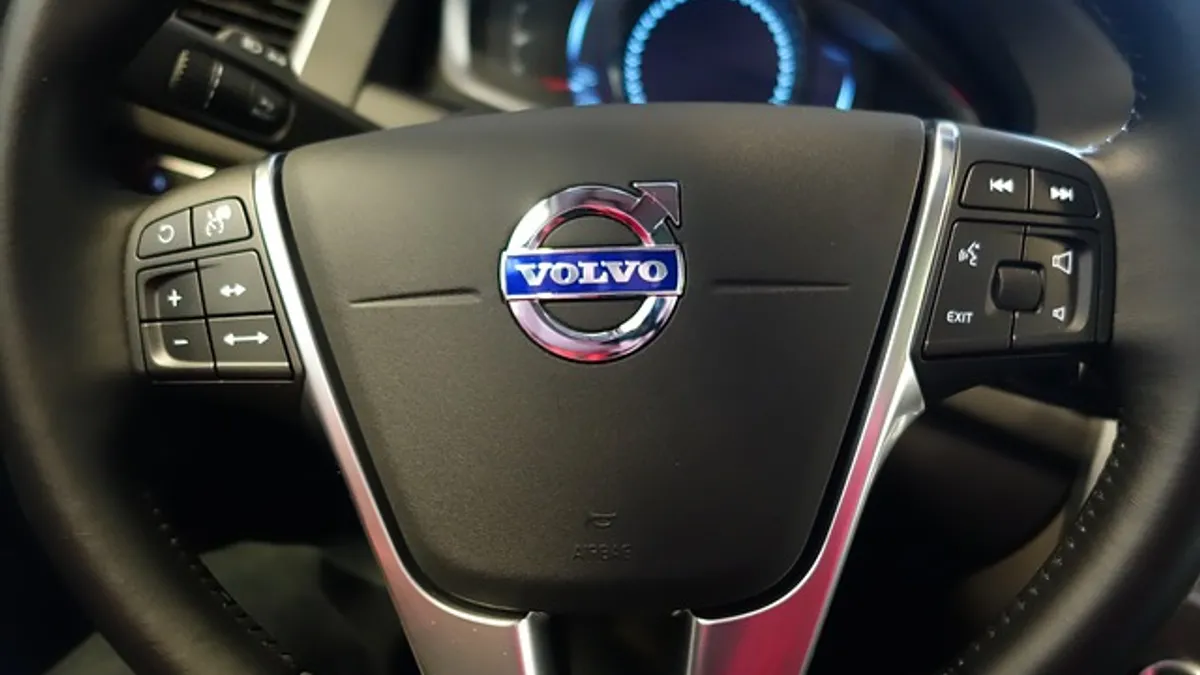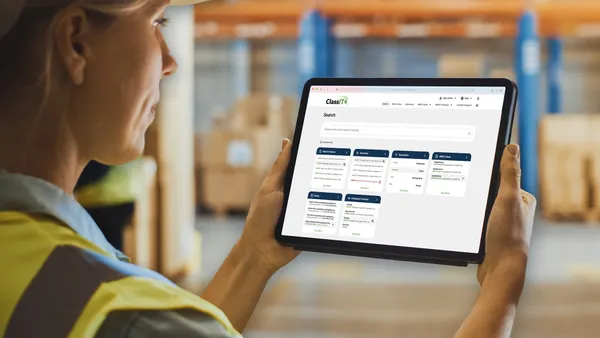Dive Brief:
- Volvo announced car and truck models will now share real-time traffic information via its cloud-based connected safety technology, according to a company press release. For now, the Internet of Things (IoT) technology will be released only in Sweden and Norway, where Volvo has a significant market presence.
- The data sharing will occur between Volvo Cars and Volvo Trucks, two independent companies. This is the first time Volvo Cars is sharing safety-related vehicle data with another organization.
- "Sharing real-time safety data based on our connected safety technology can help avoid accidents," Malin Ekholm, vice president of Volvo Cars Safety Centre, said in the release. "The more vehicles we have sharing safety data in real time, the safer our roads become."
Dive Insight:
To conform with the upcoming General Data Protection Regulation in Europe, auto companies' data will be made anonymous and validated before being shared, protecting the privacy of the drivers while providing critical information for driving safety.
IoT already is making inroads in the supply chain as vehicles "talk" to each other and transmit data, whether about predictive maintenance, parts breaking down, traffic, fuel usage, driver hours of service and route optimization. These are connected fleets—trucks, forklifts and not too far down the road, autonomous vehicles.
The technology provides organizations with visibility into their supply chains and connected fleets have implications for many organizations. Manufacturers of all kinds can use connected fleets to gain new visibility into their supply chains, lowering transportation costs and improving customer service through on-time delivery.
Ports can be among the most congested areas a driver can enter, causing supply chain delays, but IoT has even made that easier. According to tech publisher ZDNet, truck drivers traveling to the Port of Hamburg no longer have to access many message boards throughout the container port to get updates on traffic, bridge conditions and parking availability.
Instead truckers receive immediate information on a mobile app via IoT software connected to the port’s traffic management system and the telematics of other trucks.














